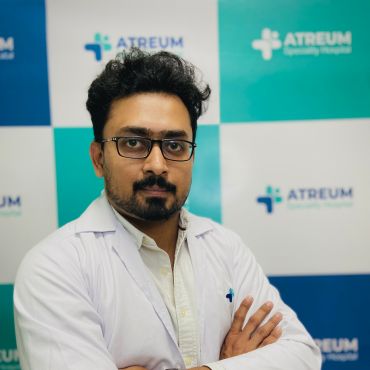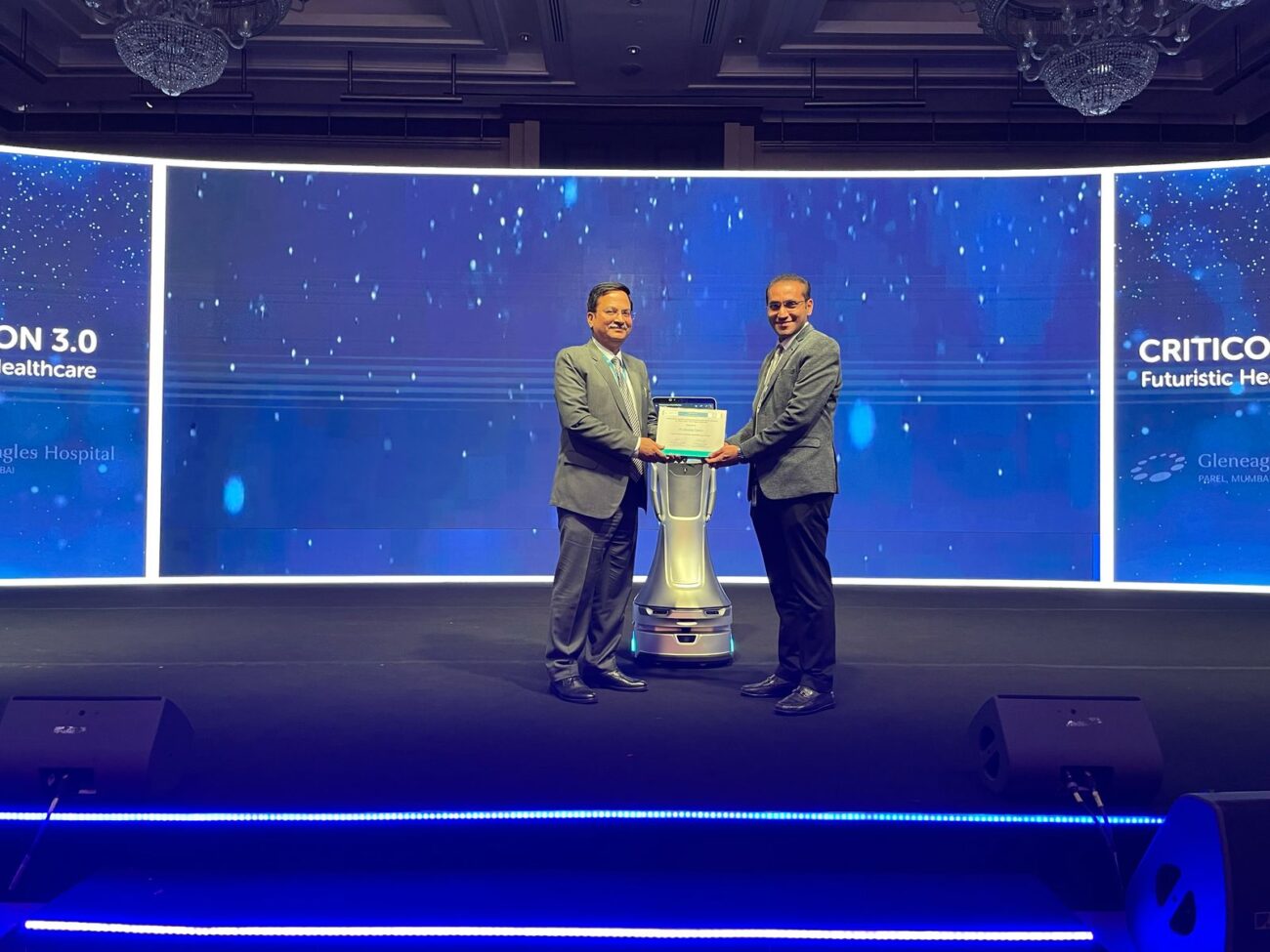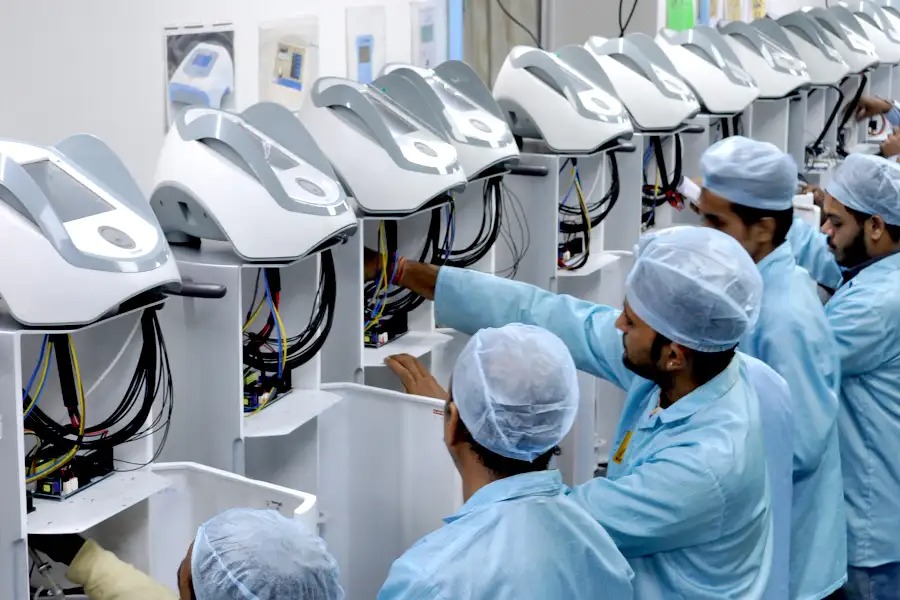Aster CMI Hospital and Indian Institute of Science (IISc) launch Artificial Intelligence (AI) Lab
Established to conduct research and upskill healthcare professionals on AI In keeping with its commitment to bring quality healthcare using the latest medical technology, Aster CMI Hospital in association with the Indian Institute of Science (IISc) launched
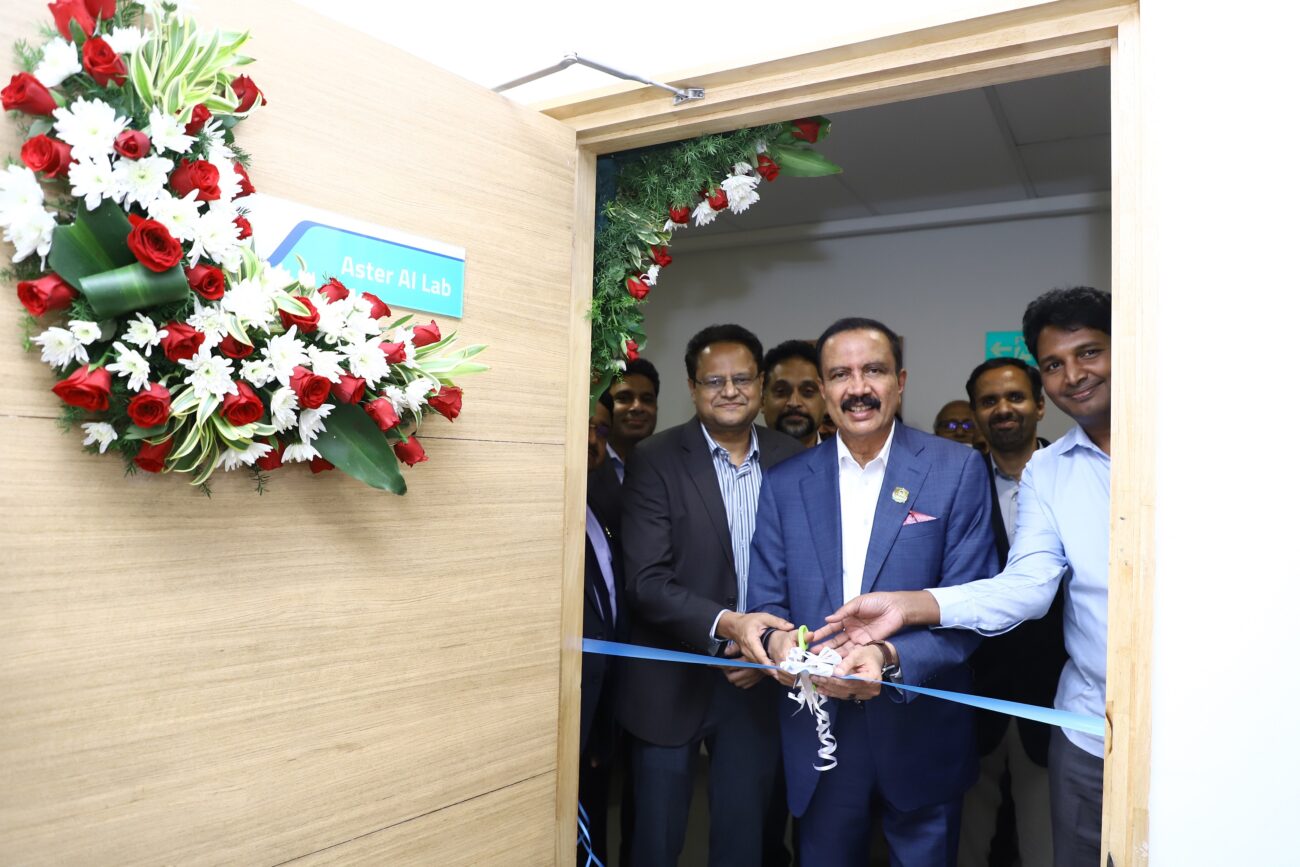
Established to conduct research and upskill healthcare professionals on AI
In keeping with its commitment to bring quality healthcare using the latest medical technology, Aster CMI Hospital in association with the Indian Institute of Science (IISc) launched an Artificial Intelligence (AI) lab today. The Aster-AI lab is a collaborative lab, set up with the aim to build cutting edge AI products in the healthcare domain and bridge the gap between clinical medicine and technology by training healthcare professionals in AI. Dr. Azad Moopen, Founder Chairman and Managing Director, Aster DM Healthcare, Dr. Lokesh B, Consultant Neurology, Aster CMI Hospital and Dr. Phaneendra K Yalavarthy, Professor of Medical Imaging, Department of Computational and Data Sciences, IISc were present during the launch.
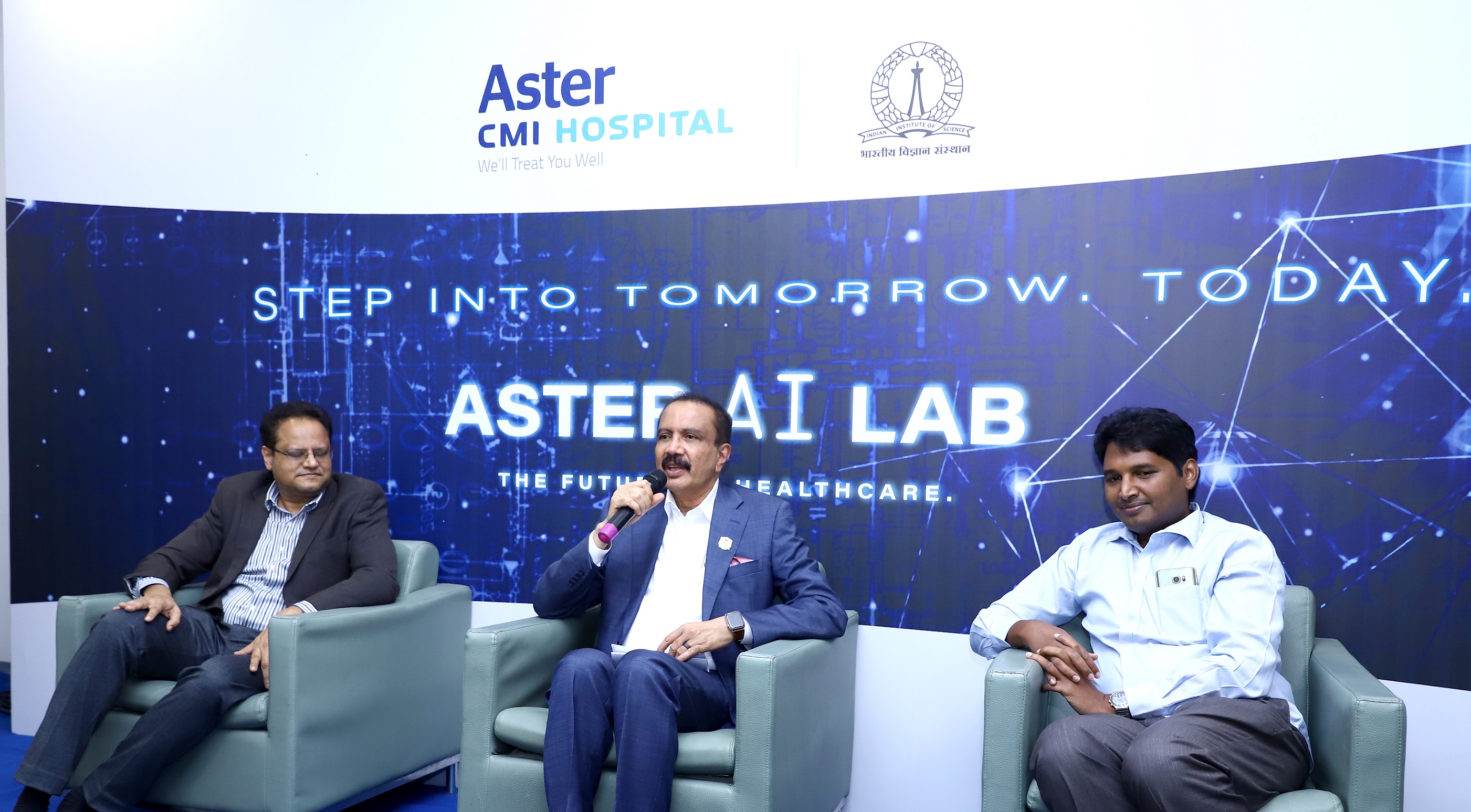
Artificial Intelligence (AI) is an interdisciplinary science creating a paradigm shift in virtually every sector of the industry. AI uses data with machine learning and deep learning algorithms to imitate the way that humans learn, gradually improving its accuracy. These data-driven AI applications have been continuing to change the way doctors solve clinical problems. The current possibilities and capabilities of AI in medicine can enable quicker diagnosis and lower healthcare costs.
Speaking on the need and how technology is transforming the healthcare system in India, Dr. Azad Moopen, Founder Chairman and Managing Director, Aster DM Healthcare, said: “At Aster, we have always believed in staying closely connected with the pulse of our patients and our people to be able to adapt as per their needs and stay ahead of the curve. We have been at the forefront of adopting digitization, technology and innovation into our core operations which is now essential to support patients as per their needs. With the use of AI, doctors and medical providers will now be able to deliver more accurate diagnosis in the fastest possible time which can aid the treatment journey. Also, AI would be a big leap towards predictive and proactive data analytics which will improve preventive care recommendations for patients. We are really glad to partner with IISc, which will open doors for healthcare professionals to undertake research and better utilize AI tools to understand their patient’s disease patterns and improve treatment outcomes significantly.”
Commenting on the collaboration, Dr. Lokesh B, Consultant Neurology, Aster CMI Hospital, said: “We are glad to associate with IISc to launch the Aster-AI lab. This lab will be hosted at Aster CMI to enable faster translation into the clinical care system. This collaboration is only a start; future scope includes exchange of personnel as well as joint workshops for increased cooperation in making AI in medicine more effective both for clinicians as well as patients. This is the first collaborative lab in the clinical environment with an aim to perform impactful as well as translatable research work in the space of AI in medicine.”
Prof. Phaneendra K Yalavarthy has been instrumental in setting up the lab by providing the computational infrastructure and expertise. IISc, with its expertise in the development of AI methods, has become the natural collaborator with Aster CMI, which has the clinical expertise, to aide, translate, and validate the developed AI algorithms for clinical use.
Expressing his excitement to have associated with Aster CMI Hospital, Dr. Phaneendra K Yalavarthy, Professor of Medical Imaging, Department of Computational and Data Sciences, IISc, said: “Artificial Intelligence (AI)-powered medical technologies have been rapidly evolving and have become powerful adjunct tools in clinical practise. The broad spectrum of digital medicine, especially to enable the 4P model of medicine (Predictive, Preventive, Personalized, and Participatory) involves natural collaboration between academic institutions and medical institutions. This Artificial Intelligence lab is a collaborative effort to develop these AI technologies in the hospital settings, such that the translation to clinic will be seamless. The initial focus of this collaborative lab will be in neurology and will later be expanded to other clinical specialities. We are thankful to Aster CMI for providing space to establish this lab at their hospital to enable co-development of some of these AI technologies for healthcare. This collaborative lab will enable the development of highly impactful research and technologies with a focus on translation to the bedside.”
Aster CMI will be working with Prof. Phaneendra and his team on ‘Development of Deep Learning Methods for Automated Tracking and Segmentation of Nerves in Ultrasound Images’. Dr. Sriram Ganapathy, Associate Professor, Department of Electrical Engineering, IISc has been collaborating on ‘Automatic Acute Stroke Symptom Detection Using Mobile Health Technologies’ and also on audio analytics in neurological disorders. These initial projects have a direct impact on the current clinical practise in neurosciences. The problem-solving requires deep technical and clinical knowledge, which the Aster-AI lab aims to bring together.



